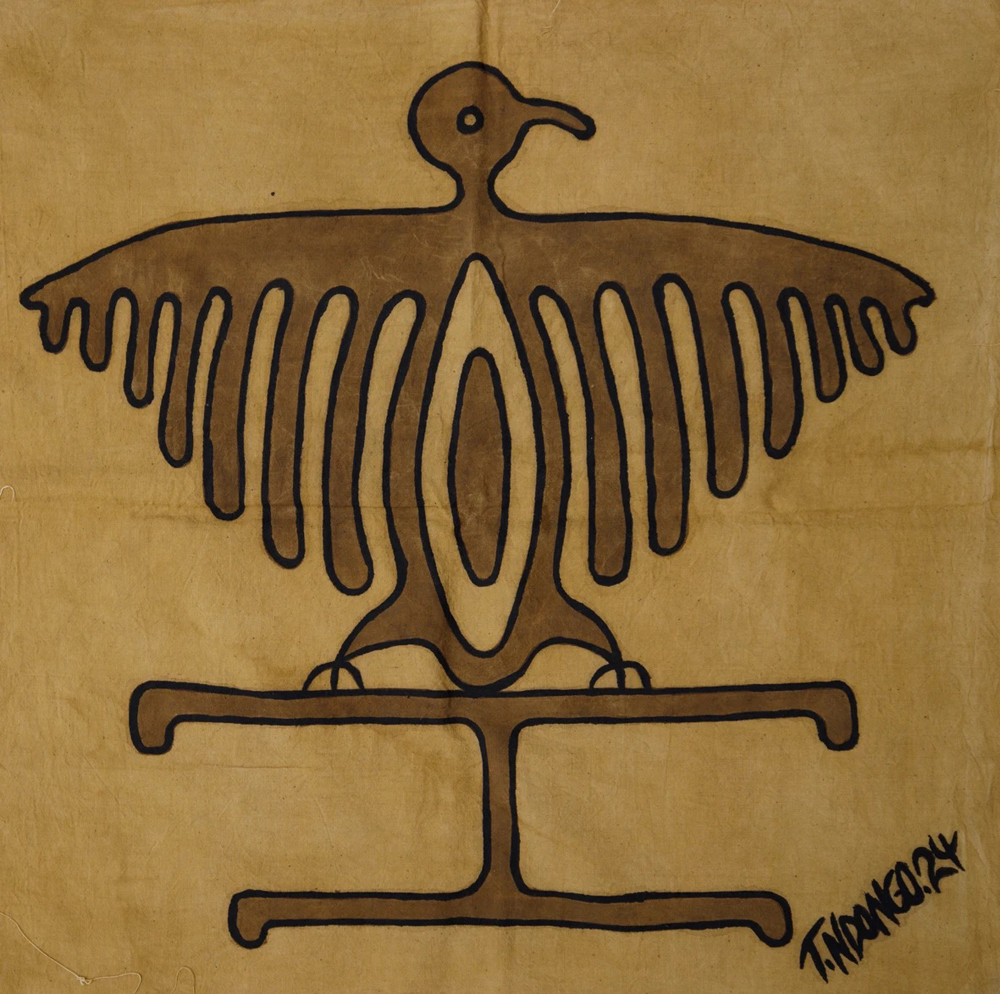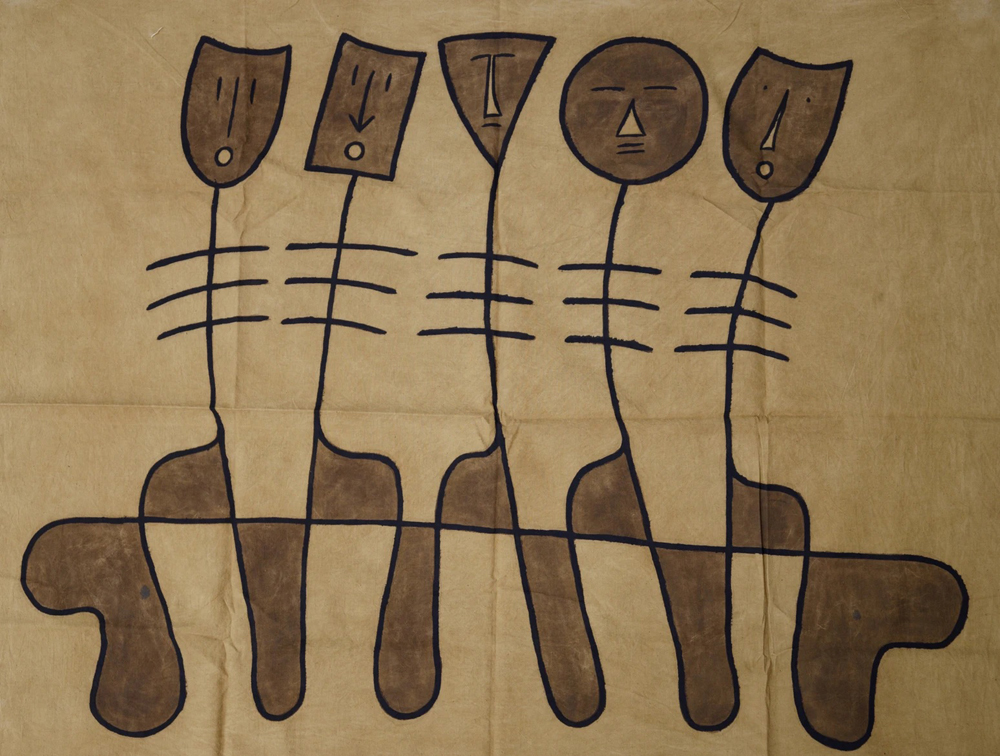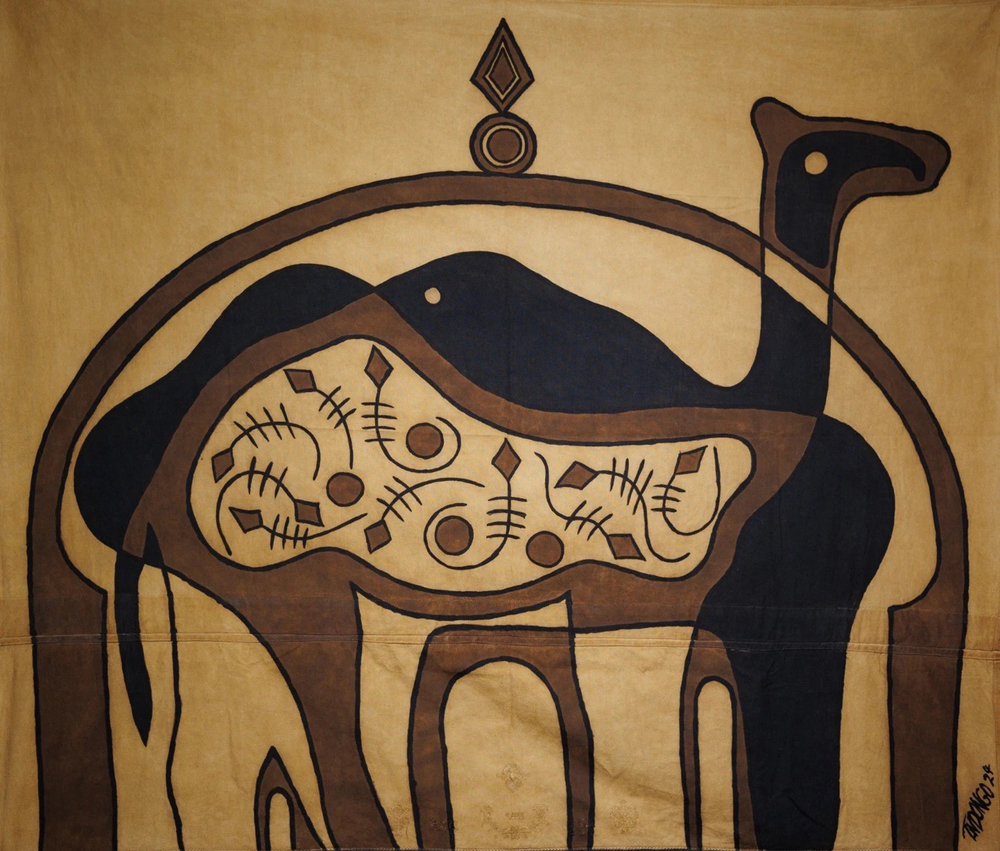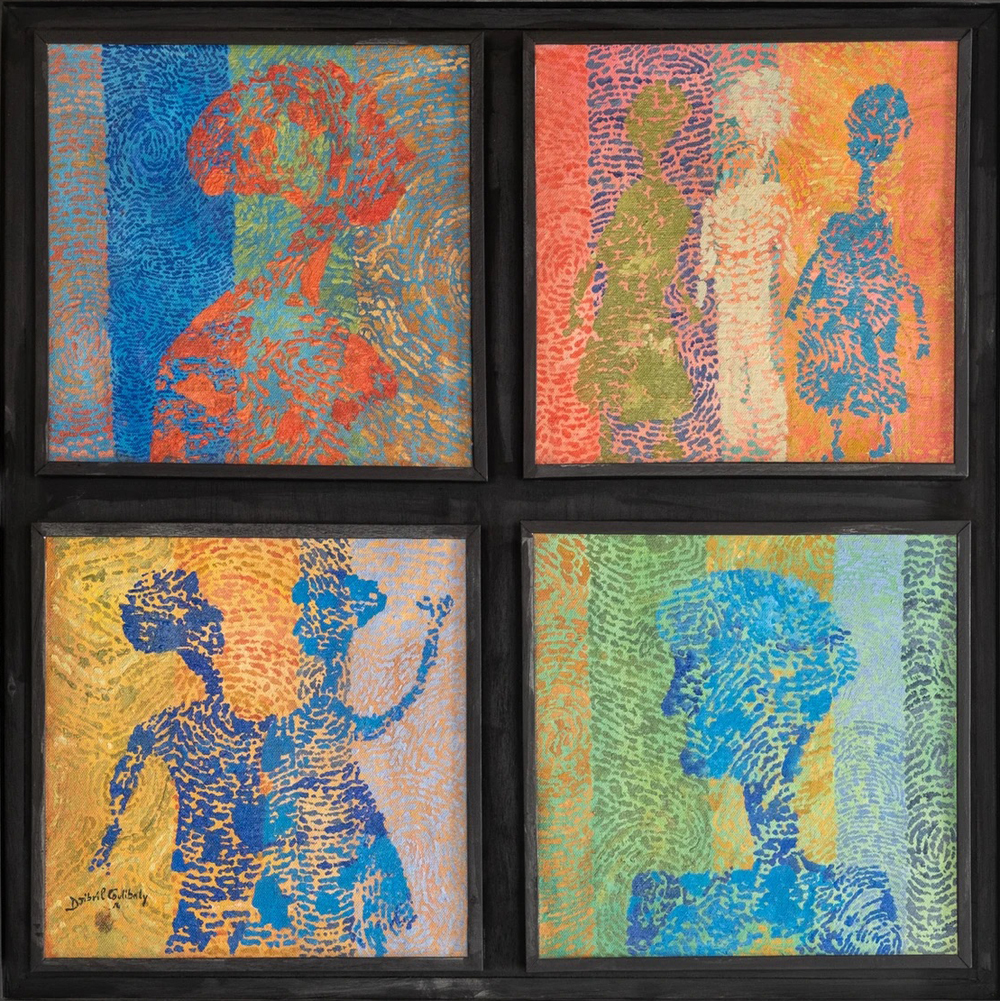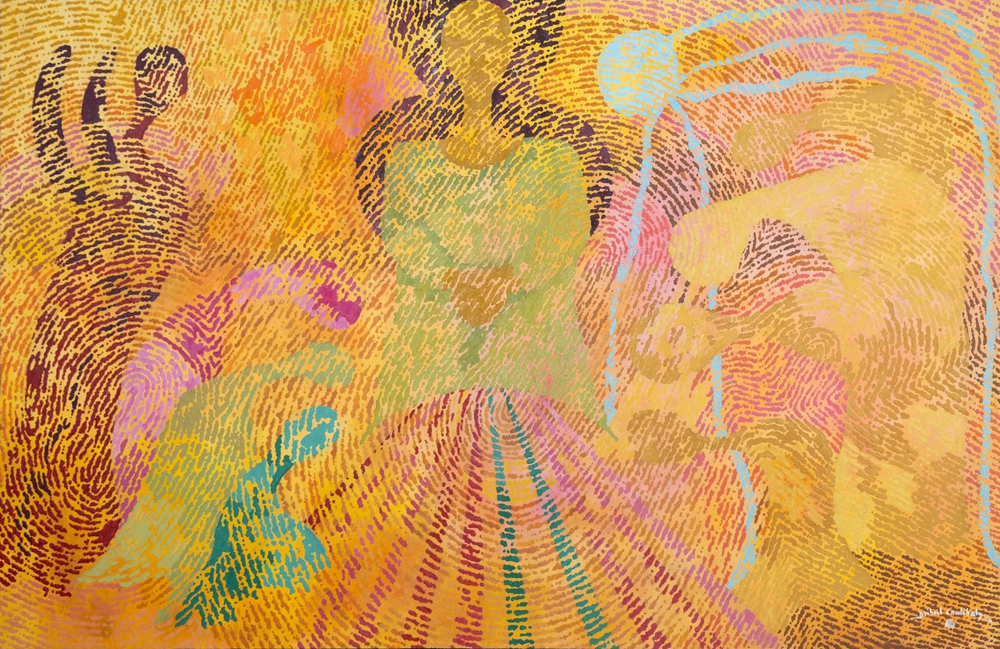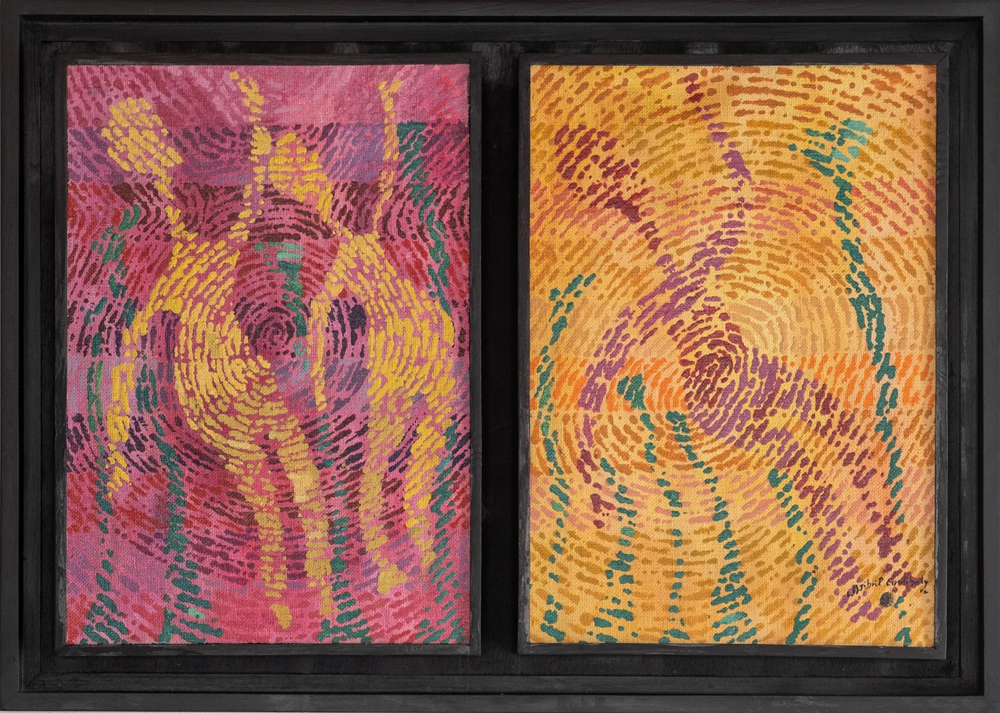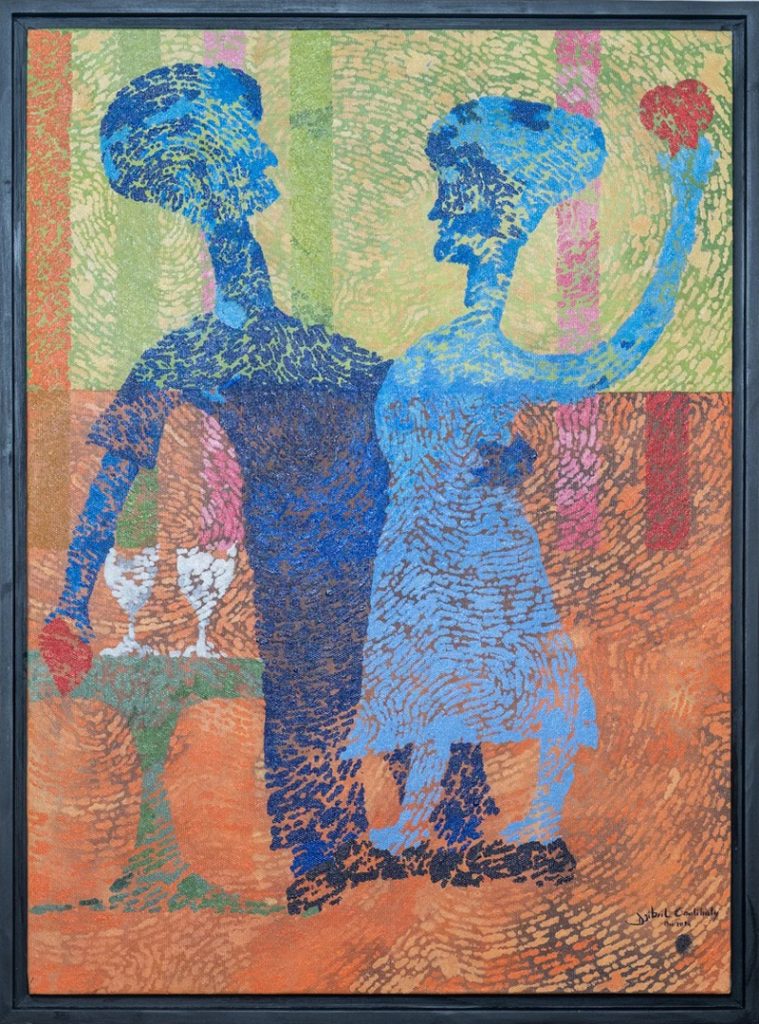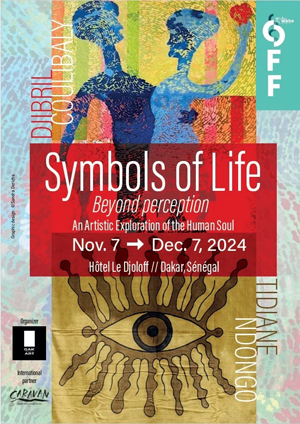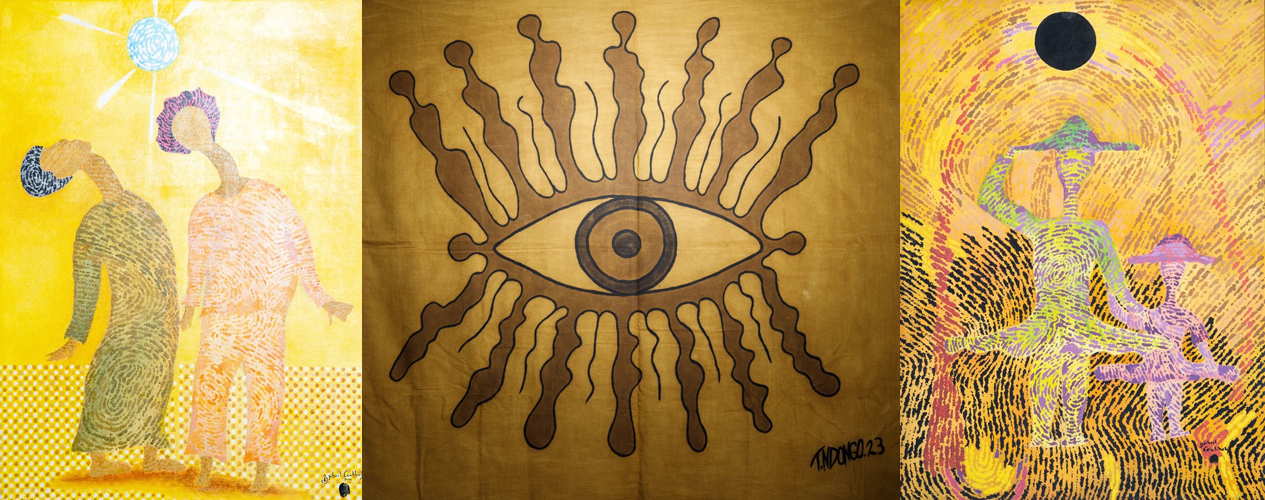
An artistic exploration of the human soul
There is something ‘transcendent’ about art. Art creates a new pathway of understanding that transcends differences, having the power to strike us on a deep, subconscious level. As Kahlil Gibran, the early 20th-century mystic and poet-artist, and author of The Prophet, so powerfully wrote: ‘The mission of art is to bring out the unfamiliar from the most familiar, from nature to the infinite.’ He goes on to say, ‘Art is one step from the visibly known toward the unknown.’
—Paul G. Chandler, President, CARAVAN
IT IS AN absolute pleasure to be able to feature once again the work of CARAVAN, an international arts nonprofit/NGO founded and curated by author and speaker Rev. Canon Paul G. Chandler, which employs art to creatively foster peace and harmony between diverse peoples, cultures and spiritual traditions, with the objective of enhancing our experience and understanding of both the transcendent and of each other, reminding us of what makes us most human.
CARAVAN’S latest offering is an exhibition hosted by the 2024 Dakar Art Biennale’s OFF programme, Africa’s premiere art event, in partnership with local organizer DakartNews. SYMBOLS OF LIFE: Beyond Perception—An Artistic Exploration of the Human Soul explores the spiritual dimension of human existence through the lens of African Sufi and Indigenous traditions by bringing together the works of two remarkable artists, Tidiane Ndongo (Mali) and Djibril Coulibaly (Senegal), who together focus on the heart of symbols and the essence of life itself.
Symbols are more than mere visual elements; they are a language through which humanity expresses and comprehends its deepest truths. What defines these artists’ approach is not the mere imitation of objects but the vitality that animates them. They invite an alternative relationship with our world. “Their works are not representations of objects but rather symbols and suggestions,” echoing the late Senegalese President Léopold Sédar Senghor’s philosophy on African art.
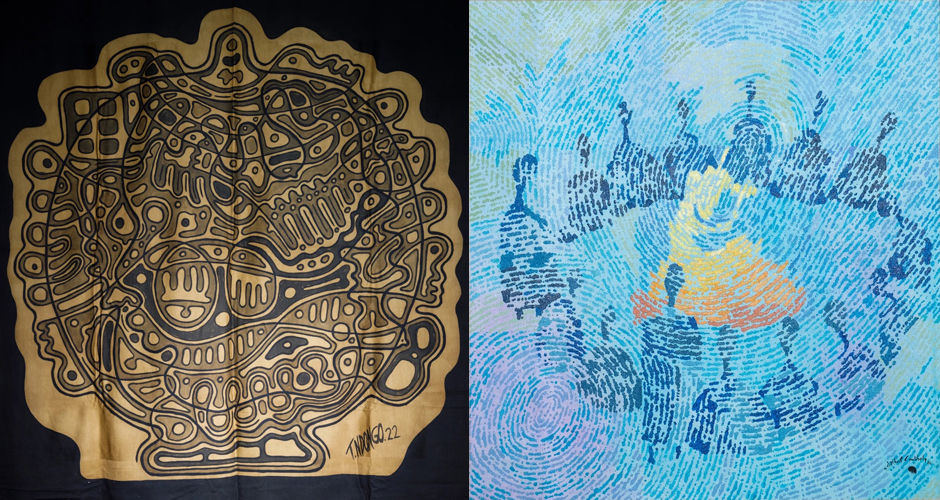
© Tidiane Ndongo, Sin Bara (Breasts), Clay and plant on cotton, 2022,
© Djibril Coulibaly, Campfire, Acrylic on canvas, 100×94 cm, 2024.
The participating artists invite us to look beyond the surface and reflect on universal themes such as identity, transformation, heritage and transmission. Each piece tells a story, using powerful symbols to evoke reflections on the human experience. Tidiane Ndongo’s intricate mudcloth patterns and Djibril Coulibaly’s dynamic fingerprint motifs encourage contemplation on the shared human condition.
SYMBOLS OF LIFE: Beyond Perception, curated by Rémy Mallet, art journalist and founder of DakartNews, is an invitation to explore these universal truths through the evocative lens of art, offering a profound sensory journey that resonates beyond the visual, speaking directly to the soul.
SYMBOLS OF LIFE: Beyond Perception runs between 7th November and 7th December 2024 at Hotel Le Djoloff, 7 rue Nani, Fann Hock, Dakar, Senegal, West Africa.
“Art is animated by invisible forces that rule the universe.”
—Léopold Sédar Senghor, first president of Senegal
Tidiane Ndongo, born in 1970 in Bamako, Mali, is an artist who has mastered the traditional Bogolan (mud cloth) technique. In 1994, he learned this art form under Youssouf Sidibé Nelly in Bamako-Coura, a lively neighbourhood in Mali’s capital. Bogolan, a technique using clay, plants and roots, became more than just a craft for Tidiane—it was a gateway to Mali’s rich heritage.
Tidiane’s work is deeply influenced by the research of the late Youssouf Tata Cissé, a renowned scholar of Malian myths and legends. Inspired by Cissé, Tidiane developed his own style, Dogodogoni, meaning “labyrinth” in Bambara. His geometric patterns represent more than visual elements; they conceal histories, traditions and the complexity of civilization. For Tidiane, Dogodogoni is like a chameleon, symbolizing change, reflection and adaptation. A lover of sacred texts, Tidiane often incorporates writings into his canvases, blending word and image. His guiding principle is: “To know myself, to be myself, for myself.” Far from selfishness, Tidiane sees this self-awareness as a path to personal growth and openness to others.
Tidiane is convinced that humans are a mix of flaws and qualities, which they display according to circumstances. His work continuously develops this conviction, aiming to make it universal and timeless. This conviction informs his work, which seeks to convey universal and timeless truths. By revisiting the signs and motifs of Bogolan, Tidiane unveils a labyrinth of meanings. Each path leads to a deeper understanding of contemporary issues while preserving the richness of this ancient cultural heritage.
“My paintings are not meant to be merely looked at, but to be meditated upon.”
—Djibril Coulibaly
Djibril Coulibaly, born in 1996 in Dakar, is an emerging artist and a member of the Mouride Sufi brotherhood. His artistic practice is deeply rooted in his faith and spirituality. Throughout his artistic journey, he has sought a personal imprint that would set his work apart. This quest led him to deep meditation and creative isolation, relentlessly exploring different facets of his artistic expression. Day by day, he immersed himself in reflection and creation, searching for a unique signature that would resonate with his inner essence and his connection to the world.
In early 2024, after reflecting on Surah Al-Imran, which speaks of God’s signs in creation and the alternation of day and night, he experienced a revelation. Gazing at his fingers, he discovered a swirl of signs in his fingerprints, a natural and universal pattern that could embody his artistic vision. This moment of epiphany marked the beginning of a new phase in his art, where fingerprints became the central motif of his expression.
Thus, Djibril’s works are distinguished by their dynamism and captivating movement. Rich in colours and textures, they create intriguing compositions where fingerprints intertwine to form complex patterns. Through his art, Djibril invites us to deep introspection, where each fingerprint becomes a symbol of identity, human uniqueness and universal connection.
Only art has this subtle ability to convey messages and make an impact that even the greatest political speeches could not achieve. By confronting the viewer with beauty, vulnerability or new perspectives, art encourages introspection, challenging one’s own prejudices and opening the mind to others. This ability of art to spark conversations, provoke emotions and create bridges between cultures makes it profoundly transformative. I also believe that art can serve as a mirror to society, highlighting inequalities, injustices or suffering, while offering visions of a better world. By making differences visible while emphasizing our common humanity, art has the power to provoke a shift in mindset, which is essential for building lasting peace.
—Rémy Mallet, Founder, DakartNews
Post Notes
- Feature image: © Djibril Coulibaly, Sunrise, Tidiane Ndongo, Eyelashes, Djibril Coulibaly, Sunset
- CARAVAN, SYMBOLS OF LIFE: Beyond Perception
- Hotel Le Djoloff
- CARAVAN, Interview with Rémy Mallet, Curator of CARAVAN’s first exhibition in Senegal, West Africa
- DakArtNews, Interview with Paul G. Chandler: Transforming the World Through Art
- Paul G. Chandler’s website
- GROUNDED: Native American Contemporary Art
- Hady Boraey: Line of Descent
- Abraham: Out of One, Many
- Kahlil Gibran: Poet, Painter, Prophet
- Carl Gustav Jung: The Red Book, Liber Novus
- William Blake: All Religions Are One
- Wassily Kandinsky: Concerning the Spiritual in Art
- The Culturium uses affiliate marketing links via the Amazon Associates Programme
